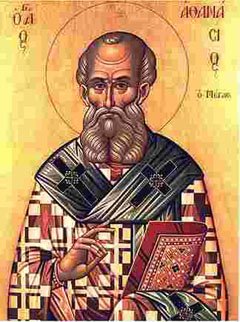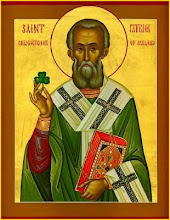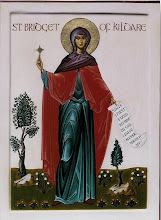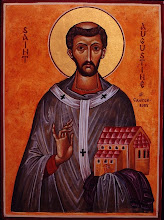Through my Baptist upbringing, I was taught that once a person was “saved” – in other words: once one had accepted Jesus Christ as Savior and Lord thereby beginning a personal relationship with Him – they would always be saved, no matter what, hence the mantra “once saved, always saved.” There are biblical references made in support of this doctrine, of course, just as there are those that support the differing view held by many that one can fall from their salvation. Calvin held that continued salvation was dependant on continued faith. Roman Catholic teaching, as far as I understand, holds that continued salvation depends upon continued good works.
What follows is not based on literal reading of the Holy Scripture. It is, however, based on interpretation of scripture and history as I have heard it.
In the days in which our Lord walked on Earth, it was the practice of shepherds in the Holy Land to bring their sheep into the sheepfold for the night. This enclosure lacked a door. The reason for this was because the shepherd, himself, would sit or lie down in that space and would function as the door. This served two purposes. The first was to keep out predators and thieves. The second was to keep the sheep within the fold.
In the Gospel according to St. John 10:14 (KJV), our Lord says, “I am the good shepherd, and know my sheep, and am known of mine.” If a shepherd, a mere man, make of himself a door to keep his sheep within the sheepfold, then doesn’t it stand to reason that our Lord, the Good Shepherd, would do the same for His sheep? Once He takes us into the fold, does He not make of Himself a door to keep the devil (thief) out and to keep us safely within? The second half of this verse doesn’t necessarily lend itself to this discussion, per se. However, when one looks at another…
In the Gospel according to St. Matthew 7:11 (KJV), our Lord says, “If ye then, being evil, know how to give good gifts unto your children, how much more shall you Father which is in heaven give good things to them that ask him?” By the same reasoning, if a shepherd, a mere man, will place himself in the doorway to keep his sheep inside the fold, safe from the thieves and predators, “how much more” shall the Good Shepherd, our Lord Jesus, keep us inside His fold and save us from the great thief?
Greater and more learned minds than mine have debated this question and come to differing conclusions. When I first quit running from the Holy Spirit, about one and one-half years ago, I began studying and attempting to justify the faith of my youth with actual scriptural truth. I started with an open mind, fully prepared to learn that I had been wrong for the greater part of my life. This is one of the issues with which I struggled, and I believe that this is the answer God wanted me to find.
Amen.
St. Michael the Archangel
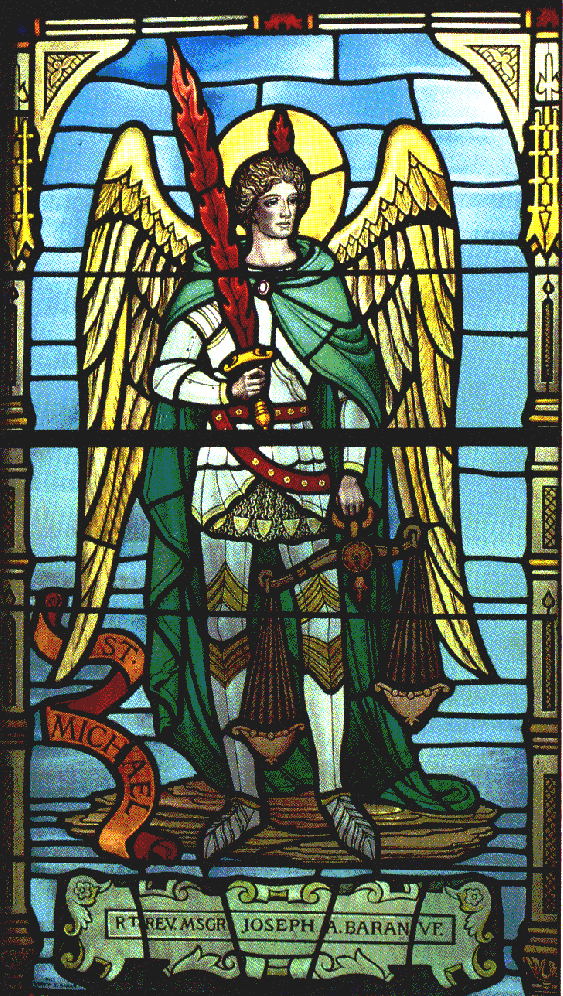
Patron Saint of Police Officers
Saturday, December 29, 2007
On Salvation, Part II
Posted by
Jerry S
at
9:28 AM
4
comments
![]()
Tuesday, December 25, 2007
Happy Christmas
I just wanted to share one of my favorite songs of the season. I have no commentary to add; I only hope you enjoy it as much as I do. Feel free to comment if you like.
Pax,
Jerry
<><
Posted by
Jerry S
at
2:51 AM
0
comments
![]()
Thursday, December 20, 2007
In This Storm
I don’t know who put this video together, but they did an excellent job. This has been one of my favorite songs for some time. It really speaks to me. We all have storms in life, times when things seem to be going terribly wrong. Not only can we not seem to get out of those times, we can’t see any end in sight. Reason fails us…our strength wanes. The lightning illuminates just enough to make things look worse than they really are, and the thunder mocks us and our inabilities. We are at the mercy of the wind and waves, or so it seems.
As with the apostles, caught in a storm on the Sea of Galilee, and the Master was asleep. They panicked, they fretted, they did everything in their power to save the boat and their lives with it. Finally, when they had lost all hope, they called on the Master in their darkest hour. I can almost hear Him now: ”O ye of little faith…did you honestly think I would let you come to harm? If only you had come to me first, you could have been spared from all of this worry and heartache.”
But that is the problem with us humans: we think we can do everything ourselves, or at least that we should be able to. Not until all seems lost do we go to the only One who can give us the strength, the grace to come through our storms. The sovereign God is in control. We have to trust that there is a purpose for the storms of our lives, that God is helping us to grow through them. Nothing can grow without the rain…no blade of steel can be made without first going through the fire. We are to praise Him in the storms of this life because it is through the rain that we grow…it is through the fires that we become strong.
Posted by
Jerry S
at
5:46 AM
0
comments
![]()
Tuesday, December 18, 2007
Examples
On an ordinary Sunday at the First (insert denominational preference here) Church, the congregation had just finished the last hymn before the sermon. The pastor stood behind the pulpit and prepared to speak. He welcomed everyone and invited them to open their Bibles to the passage from whence his message would come. It was at this time that a young man entered. He was wearing dingy and torn denims and a T-shirt depicting a rock band, and his hair was disheveled and in desperate need of cutting. The young man began to walk up the center aisle in search of a seat, much to the disapproval of the parishioners, who were whispering not-so-quietly their displeasure that such a specimen had trespassed on their new plush carpet to disrupt their worship. The pastor paused to allow the young man to find a seat, hoping that the congregation would then settle down enough to hear the sermon. The young man walked to all the way to the front pew, searching for a seat; however, there were none to be had. Without missing a beat, the visitor sat in the floor of the aisle, directly between the front two pews and crossed his legs, looking up expectantly at the pastor. Finally a deacon, quite possibly the oldest man in the building and one of the best dressed with his suit perfectly tailored and his hair and mustache perfectly trimmed, began to make his way from the rear toward the young man. The whispers changed from contempt to relief that something would finally be done to remove the vagabond. The old man marched directly to the visitor and, to the surprise of the crowd and the glee of the pastor, sat down on the floor beside the lad. With a tear in his eye, the pastor said, “Deacon Smith has just taught us, through his example, a better lesson that any I could have prepared for today.” The pastor lifted his sermon notes and tore them in half, and then he began speaking to his flock on the love of Christ.I heard this anecdote as part of a sermon some time ago, but I cannot remember from whom. For some reason it came back to me and I thought I would share it. We, as humans, tend to become a bit proud of our buildings and accoutrements. Sometimes we forget that our purpose as the Church is to take the love of Christ to others. God does not care that we cannot afford the finer things in life. In the grand scheme of things, the shabby state of our attire is of no matter because while we look without, He looks within.
Peace,
Jerry
<><
Posted by
Jerry S
at
11:48 AM
1 comments
![]()
Sunday, December 9, 2007
On Salvation
While browsing Vindicated: The Amazing Blog of Kyle Potter I found some comments concerning salvation. Specifically, a couple of comments to a post dealt with the question: “What is salvation?” Of course we all know that there are myriad ideas concerning this ever important concept. We have all heard the familiar slogans: sola fide, sola gratia, “no salvation outside the church”…just to name a few.
As I was raised as a Southern Baptist from childhood, let us first discuss the common Protestant Evangelical doctrine of salvation. St. Paul said that salvation was not due to our own works or merit, but by grace through faith [in Christ Jesus]. He also said that, in order that we could not boast on any level that we had any hand in our own salvation, that faith, which brings God’s grace to us, is a gift from Him. Let’s break this down a bit. Salvation (deliverance, rescue, recovery, escape) is a result of [undeserved] grace (kindness, favor, mercy, charity…) made possible by our faith (trust, reliance, belief, devotion, loyalty)[in Christ], which is given as a gift from God. Basically, it is all God’s doing. We cannot even boast that the required faith is of ourselves. So, if we can’t even be counted upon to provide faith for our own salvation, how can anything else we could possibly do contribute in any way toward our salvation? I am at a loss as to how that could be accomplished. Also, let me say that I agree with this, as far as it goes anyway.
Most Protestant Evangelicals stop just there. In fact, that is precisely where I stopped when I was approximately twelve years old. This is how it went for me: I was sitting in the pew in Sunday worship, listening to the pastor’s sermon. At the end of his sermon, just as every other sermon, there was an “altar call.” For those who have no idea what that means, in the church where I grew up, this meant that the piano and organ would play and the congregation would sing a hymn while the pastor pled with any and all for them to accept Jesus as Lord and Savior by reciting a prayer and walking forward to make a profession of faith. This particular Sunday, I felt more than heard that still, small voice calling me. I prayed that prayer, asked God to forgive me of my sins, and, with tears in my eyes, walked to where the pastor was standing just below the pulpit. There was the announcement that I had become a child of God, there was much shaking of hands, the proud parents were called to stand with me, and I was baptized in the name of the Holy Trinity by full emersion at the following Wednesday-night service. It was at this point, as stated earlier, that my growth in the kingdom of God ceased.
While I called myself a “born again Christian”, there was nothing in my life to show this. In answer to that famous question, there was not enough evidence in my life for a court to convict me of being a Christian. This brings me to another question: What does it mean to be “born again”? In the tradition of the church catholic, it is believed that one is born again at baptism. It is through this sacrament that grace is imputed to the baptized from the Holy Ghost. It symbolizes our identification with the death, burial, and resurrection of our Lord in that we die to sin, are “buried” under the water, and are raised up as new creatures in Christ. But what if there is more?
Our Lord said that if our righteousness is not greater than that of the Pharisees, we will not enter the kingdom of Heaven. What does that mean, considering that the Pharisees were known as the most righteous people on earth? It was their sole ambition in life to keep the Law perfectly…they were legalists. What’s more, their righteousness was not enough. How could one be more righteous than a person who lives a lifestyle of righteousness? Evangelical theologians have used this to support the idea of sola gratia, grace alone. If in order to be saved one must be more righteous than the most righteous people on earth, there is no way for any to be saved…except. Except that upon our acceptance of Christ as Savior and Lord, we receive and are covered by His righteousness. This is a grand thought, that He loves us so much that He, knowing that we cannot do it ourselves, does it for us. He knows that we do not have enough righteousness of our own, so He gives us His. But what if there is yet more?
What if the “our righteousness” means just that…not His righteousness? What if He meant that, after being born again, we receive the grace to have that righteousness? Or if you do not like that one, try this: The Pharisees’ righteousness was for their own sakes. While they may have begun with proper intentions, by the time of our Lord’s earthly ministry they did it for the recognition it brought them. What if God gives us the grace to seek righteousness for His sake? That would make our righteousness greater than the Pharisees’. Or would it? What if it is a combination of both?
We know that we are saved by grace and that works play no part in our salvation in that works do not save us. However, there is too much mention of works for there to be no connection. Our Lord said that those who love Him will keep His commandments. Love denotes faith, which would mean that faith requires action in keeping the commandments of Jesus. He said that he would separate the sheep from the goats according to their works. James (for our Roman Catholic friends) said that “faith without works is dead”. These are just a few of the references to the necessity of good works in relation to salvation. Are good works required for salvation? Not according to St. Paul, but St. Paul's writings agree with the others that they, good works, are required of the saved.
Finally, in case you are wondering after all of this questioning on my part, I am in total agreement with St. Paul. We are saved by grace through faith to do good works. As to the question of righteousness, I know without doubt that I am wholly incapable of righteousness without the grace of God. I believe that what makes our righteousness greater than that of the Pharisees is the fact that by the grace of God our quest for righteousness is for His sake and not our own, which makes us to strive for more. I believe that our good works are part of that righteousness, and that God works through our deeds to bring others to Himself. Do I think that these works, this “social gospel”, are a substitute for the True Gospel as some would have us believe? Heaven forbid! Lest we forget that one of the commandments of our Lord was to preach the Gospel. And as for my over use of the very Protestant term “acceptance”, I firmly believe that a conscious decision of acceptance must be made. Remember I said that faith requires action? Just as we are given the opportunity to decide not to accept the gift, we are required to decide to accept the gift if we are to see the kingdom of God. I found in my own experience that, just as I made that choice in the Baptist church of my youth, I choose everyday to follow the path set before me by our Lord. I choose to seek His face instead of the face of the world. I choose to strive for righteousness for His sake. I choose Him because He chose me. Amen.
Posted by
Jerry S
at
2:55 AM
1 comments
![]()
Friday, November 30, 2007
Ten Things to Know About Romans
1. Romans is the Gospel According to Paul.
Granted, it doesn't look like Matthew, Mark, Luke, or John, in the way their Gospels told the story of Jesus' earthly ministry and interspersed it with His teachings. Paul does it in his own way.
Why is that important to know? Ah, we have the answer to that!
Right now, there are people promoting their religion in your neighborhood who want to give a new interpretation to Holy Scripture. One such group tells of an angel appearing to their founder with golden tablets on which had been written an ancient story. The angel provided special glasses for the man to look through and decipher the writings. The result was their new book, their new doctrine, and their new twist on the message of Christ.
Now, in Galatians chapter 1, we find this from the Apostle Paul: "Even though we OR AN ANGEL FROM HEAVEN preach any other gospel to you that what we preached, let him be accursed."
And then, as though underscoring what he had just said, Paul repeated it. (Gal. 1:8-9)
The point of that is this: we hold in our hands the very message Paul preached up and down the Roman Empire. It's called "The Epistle to the Romans." And Paul says anyone preaching anything other than that is declaring a lie and headed for judgment. Slice it any way you please and it comes up that way!
That's why it's crucial we help our people to get an understanding of Romans.
Someone asked the bank teller, "How do they teach you to recognize all the counterfeit money people try to slip past you?" She answered, "They don't. They just teach us to recognize the real thing. Once we know that, it's a simple matter to catch the fakes."
In teaching Romans, we are helping our people to know and recognize the real gospel of Jesus Christ. There could be no better preparation for dealing with the shams and fakes combing the streets of your neighborhood looking for the naive and unsuspecting.
2. Romans is deep.
Ah, but you knew that. You've started reading it, determining to enjoy it and learn from it, to grow deeper in Christ. Pretty soon, you're deep all right--in over your head, and you're not out of the first chapter! Welcome to the writings of Paul.
Romans is left-brain material. All logic and reason and well-thought out arguments based on revelations of God in the Old Testament as enlightened by the Holy Spirit. There's not a single funny story in the entire epistle! No jokes, no illustrations to speak of, and not a single cartoon if you can believe that--nothing but solid reasoning. Pure truth. It's vintage Paul all the way through.
You may remember what the Apostle Peter said about Paul's writings. Assuming Peter to be the author of the Second Epistle that goes by his name--the scholars are not in agreement over that; although it is most definitely God's Word to us--down toward the end of chapter three, we read:
"...just as also our beloved brother Paul, according to the wisdom given him, wrote to you, as also in all his letters, speaking in them of these things, in which are some things hard to understand, which the untaught and unstable distort, as they do also the rest of the Scriptures, to their own destruction." (II Peter 3:15-16)
We notice three things in Peter's one-sentence commentary on Paul's writings.
(1) There are some things hard to understand. We knew that; we're just glad someone else admits it!
(2) People without adequate understanding misinterpret Paul's writings and get in big trouble. If you question this, tune in any of the hundreds of radio or television preachers and stand amazed at what you hear.
(3) Paul's writings are scripture. Granted, the word "scripture" simply means "writings," but early on, the word was used by believers to refer to Holy Scripture. Biblical historians tell us the early church elevated these writings to Scripture status quickly.
Although "Romans" is deep, it's not all over your head. Much of it is accessible to new believers and those without a biblical background. You don't have to know Greek or have a seminary degree to appreciate chapter 8 of Romans, one of the most sublime chapters in any writings of any time. Scattered throughout the rest of the epistle are gems which the Holy Spirit distributed to encourage us to come on in, open your mind and heart, for what's ahead is well worth the effort.
--Dr. Joe McKeever
Dr. Joe McKeever is a Preacher, Cartoonist, and the Director of Missions for the Baptist Association of Greater New Orleans.
http://www.joemckeever.com/mt/
And hopefully more to come.
Jerry
<><
Posted by
Jerry S
at
10:10 AM
0
comments
![]()
Thursday, November 15, 2007
Field of Dreams...
I was speaking to a friend on the eve of All Hallows, and we were discussing the state of Anglican orthodoxy in our town. Unfortunately, there is absolutely no truly conservative, non-ECUSA, Anglican presence in our town. In fact, the closest parish is a REC parish located approximately forty minutes away. I find myself of two minds on the matter of this REC parish.
I have spoken privately with the rector and listened to a couple of his sermons; and I find him much to my liking. They are a small but growing congregation with active children’s and youth programs. The rector leads a “prayer walk” through the neighborhood every Sunday afternoon. I see many good things in this parish’s future. Conversely, while some in the congregation have been quite gracious, I have encountered some who would be considered less than welcoming. Another point against is the fact that my wife is less than thrilled with the situation.
I have spent much time in prayer and contemplation on prospects for my family’s place of worship and learning; and the more I think on the subject, the more the thought comes back to me that what we, my family and another, are meant to do is plant a mission. This would, despite the obvious logistical obstacles, solve several problems, only one of which would be a lack of conservative, non-ECUSA Anglicanism.
One huge problem with this idea is the lack of potential parishioners. Our area is served by one Episcopal parish and one mission, of which most of the average Sunday communicants are unlikely to leave their comfortable pews.
Which brings us to the title of this post…a Field of Dreams. Yes, that’s right…the movie, or at least one specific line from it. “If you build it, they will come.” If it is truly meant to be, if it is God’s will, the presence of a new Anglican mission should bring disgruntled Anglicans out of the woodwork. We cannot be the only nine people in this town who are dissatisfied with the state of ECUSA. If we give them an alternative where the true Gospel is taught, won’t they come running? Won’t they come?
Am I completely convinced that this is the way to go? No, this is probably the second most difficult decision I’ve ever faced (the first is one for a later post). One thing of which I am absolutely certain in this question is that it would be easier said than done. I don’t know the first thing about building a mission, being a “founding father” as someone once said. Another is that, if it is His will, God will do all the work…all we have to do is let Him.
Pax
Jerry
Posted by
Jerry S
at
9:37 PM
5
comments
![]()
Friday, November 9, 2007
Thanks, Grandma O
I received the following poem in an email today and thought I would share it. Let me know what you think.
Peace,
Jerry
YOU ASK WHY I FOLLOW THIS JESUS?
You ask why I follow this Jesus?
Why I love Him the way I do?
When the world's turned away from His teachings
And the people who serve Him are few.
It's not the rewards I'm after
Or gifts that I hope to receive
It's the Presence that calls for commitment
It's the Spirit I trust and believe.
The Lord doesn't shelter His faithful
Or spare them all suffering and pain,
Like everyone else I have burdens,
And walk through my share of rain.
Yet He gives me a plan and a purpose,
And that joy only Christians have known,
I never know what comes tomorrow,
But I do know I'm never alone.
It's the love always there when you need it;
It's the words that redeem and inspire,
It's the longing to ever be with Him
That burns in my heart like a fire.
So you ask why I love my Lord Jesus?
Well, friend, that's so easy to see,
But the one thing that fills me with wonder is
Why Jesus loves someone like me.
-- Author Unknown
Posted by
Jerry S
at
5:34 AM
0
comments
![]()
Thursday, November 8, 2007
Thanksgiving
4 I thank my God always on your behalf, for the grace of God which is given you by Jesus Christ. [I Corinthians 1.4]
Every year, on the fourth Thursday in November, we Americans celebrate, as a nation, a day of Thanksgiving. My question is this: Why do we, a people who largely confess affection for God, need a governmentally mandated day on which we are to give thanks? The Holy Scriptures are chock full of references to thanksgiving. Are we in a better state than David? Or the Apostles? Or even our Lord Christ Jesus, Himself? If it is true that God rules over all things and provides all things, then it stands to reason that we should give thanks to Him for all that we have. Consider this also: if God rules over all things and provides all things, and if it is also true that God uses all things to the good for those who love Him, then we should further praise and thank him for those things that we perceive as bad, since He will doubtless ensure a good outcome. We should, for lack of better expression, thank God for those things that we do not have, as it is for His glory that we have or have not.
10 Wherefore David blessed the Lord before all the congregation: and David said, Blessed be thou, Lord God of Israel our father, for ever and ever. 11 Thine, O Lord, is the greatness, and the power, and the glory, and the victory, and the majesty: for all that is in the heaven and in the earth is thine; thine is the kingdom, O Lord, and thou art exalted as head above all. 12 Both riches and honour come of thee, and thou reignest over all; and in thine hand is power and might; and in thine hand it is to make great, and to give strength unto all. 13 Now therefore, our God, we thank thee, and praise thy glorious name. 14 But who am I, and what is my people, that we should be able to offer so willingly after this sort? For all things come of thee, and of thine own have we given thee. [I Chronicles 29.10-14]
These questions are even more challenging when we consider them in the context of David’s prayer of thanksgiving from I Chronicles 29:10-14. David recognizes that all things come from God the Father Almighty and by extension recognizes his obligation to give thanks for all, taking his logic to its most rational conclusion. The text, in verse 14, shows David’s realization that, since all things come from God, then even the ability to give thanks is a gift of God.
Why would God give us a gift, which He does not expect us to use? The short, and most obvious answer is: He wouldn’t.
And please do not think from this post that I consider myself above my own criticism. Quite to the contrary, I most wholeheartedly include myself. I know that I do not thank and praise God nearly enough. Try with me to remember God's goodness all year round, not just every fourth Thursday in November.
Let us give thanks unto our Lord God, for it is meet and right so to do. Amen.
Posted by
Jerry S
at
8:41 AM
3
comments
![]()
Saturday, November 3, 2007
Confusion
Confusion can be a wonderful thing, should one choose to use it properly. It can provide for us motivation to explore and learn, which is surely the purpose God has in mind for it. Confusion is His way of telling us that we don't know as much as we think. We don't have it all together. If we recognize this, and look in the right direction (meaning toward God), we can come to greater truths than we ever thought possible; we can come to a greater knowledge of our Lord.
Confusion has its down side, too. More often than not, confusion becomes an excuse to leave something alone. We think to ourselves, "I'm confused and I don't know where to turn. Forget it; I'm done with this religion stuff." There is also the likelihood of confusion leading us astray. There are so many different resources available to the searcher, some good and others not so good, that many take the wrong paths.
There is a term used in the courts, which applies to the question of confusion: "the totality of circumstances." One must consider the totality of the circumstances, the sum of the facts, when deciding the question of truth. The amazing thing about our faith is its historicity. Not the denominational question, as there are good points and bad in all the true Christian denominations, but the matter of our orthodoxy - our beliefs. There is a risen Christ, and He was seen in this world by hundreds of eyewitnesses. We can look into historical texts, as well as religious, to aid us in our quest for the truth.
Now, before I confuse myself, I'll stop rambling for now.
Pax et bonum
Posted by
Jerry S
at
1:21 PM
0
comments
![]()
